Title Text
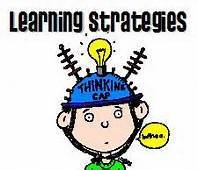
Learning Strategy Instruction
Strategy Instruction is a student-centered approach of teaching. Learning strategies are use by student to help them understand the material and solve problems. Many students with disabilities struggle in developing strategies for learning and remembering material. Students who fail to acquire good learning strategies can really struggle in school even to the point of failure. Teachers that use strategy instruction help the students by teaching the them ways to remember and learn in a more effective way. Students who are taught this will learn to integrate new information and material with what their existing knowledge, in a way that makes sense to them. This is turn will make them more active learners. It will also make it easier for them to remember and recall the material learned.

Learning Strategies Cirriculum
There are many types of learning strategies in each area of study. As a teacher it is best to consider your students when choosing what learning strategies you want to use. No strategies will work for every student and sometimes it is trial and error to find the one that fits the best for your classroom situation.
SIM
Strategic Instruction Model
SIM is made up of a series of teacher-focused content enhancement teaching routines. This is designed specifically so the teacher can deliver organized material in a fun and engaging way to the students. SIM has seven different components and contains more than 30 strategies to help students improve their skills and performance in almost all areas of learning.
Strategies for Reading
- Word mapping
- Visual Imagery
- Paraphrasing
- Word Identification
- Self Questioning
Strategies for studying and remember info
- First letter mnemonic
- Paired Association
- LINCS Vocabulary
- Listening and Note Taking
Strategies for Writing
- Sentence writing
- Paragraph writing
- Theme writing
- Error Monitoring
Strategies for assignment and test performance
Strategies for interacting with others
Strategies for Motivation
Strategies for Math
- Assignment completion
- Strategic tutoring
- Test Taking
- Essay Test Taking
- Cooperative Thinking
- Community Building
- Self Advocacy
- Possible Selves
- Addition Facts
- Subtraction Facts
- Multiplication facts
- Division Facts
- Place Value
Identifying Important Information
The brain cannot remember everything that is taught so students need to decide what is important. The problem is, students often struggle with identifying important information. They often pick up on unimportant information and the more important topics fall off. Teachers can help students learn and identify key information by letting the students know what the most important ideas are. You can do this by telling them exactly what the information is you would like them to know. Another option is to: provide a list of objectives for a lesson, write key concepts and relationships on the chalkboard, and ask questions that focus student’s attention on important ideas. This way tends to aid the students that struggle more. If they are prompted by ideas and they come upon the answers on their own they are more likely to remember that. As a future teacher, I will try and use the prompting methods until my students become better at identifying key information by using things like topic outlines. These can guide them as they listen to the information being given. This allows them to be active in their learning but also allows you to have a hand in deciding what is important. Students with special needs may have a little more trouble with this skill and require a little more help identifying the information.
Retrieving Relevant prior Knowledge
Students engage in meaningful learning when they have previous information on the topic being discussed. Therefore, it is important for teachers to encourage and teach students to retrieve relevant information when they are studying. If students are retrieving information from their long term memory and using it, they are more likely to make connections and remember it which leads to better performance. One way to teach students to do this is by modeling the behavior when in the classroom. When going over information and lessons in the classroom you can take breaks to review and go over the main points and topics discussed so far. By doing this you are giving students a valuable tool of information recall that they can use on their own. We can also give students specific questions to help aid them in retrieving information such as: what do you already know about your topic, what do you hope to learn about your topic, and do you think what you lean by reading your books will change what you already know about your topic? Students with TBI may have a considerable amount of difficulty retrieving the information. It would be good to use some memory strategies with them.
Features of Effective Learning Strategies
Taking Notes
Note taking is a valuable skill for students and it is vital to their academic success that they learn to do it properly. Quality note taking skills can make a notable difference in the students study skills and is a tool that will follow them through college. When taking notes, students generally learn and remember classroom subject matter better. Despite their importance, note taking is not a skill that many students successfully achieve. Useful notes outline the main ideas of the lesson given. We can aid students in learning how to take notes by providing them with a specific structure to use or give them constructive feedback on their notebooks. This is one skill that I find important. I will work with my students on note taking skills with use of partially filled in notes to help them learn how to set up their notes and as their skills develop, The notes I give them will have more and more blanks until they can efficiently take notes themselves. For the students with special needs it may be important to give them more guided instruction. They can also use computer programs to take notes or tape the leture to listen to at a later time.
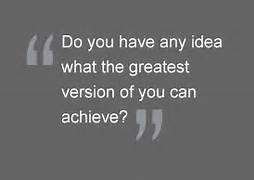
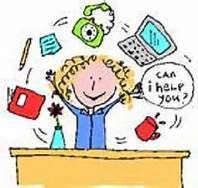
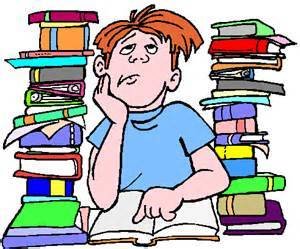
Organizing Information
Organizing is an extremely useful strategy to help students focus on what they are learning. This skill also helps them engage more actively in what they are learning. Outlining the material is a useful tool, especially for low achieving students. Concept maps are also very useful in depicting the main ideas of the lesson and the relationships throughout. I personal really like concept mapping because it gives the students a picture which, is especially good for the visual learner. Graphic organizers are good too, they give the students an outline to follow when organizing information. I can see myself using all of these tools in my classroom. It is best to decide what strategy would work best for each individual student.
Creating Summaries
Creating a summary includes distinguishing between important and unimportant information, synthesizing details into more general ideas, and identifying important relationships within the ideas. This can be a difficult for a lot of students. Teachers can help students acquire these skills by asking students to summarize on a regular basis. This is not hard to do, at the beginning of the week, you can ask them to summarize what they did over the weekend. After you finish a chapter you can have them summarize what they learned and even the use of book reports which summarize the contents of the books they read will help.
Features of Effective Learning Strategies
Monitoring Comprehension
One of the most important strategies is the ability to monitor your comprehension of the material. It is important for students to reflect on what they are learning and ask themselves if they are getting it and if they are not they need to be able to recognize that and asks the questions needed to be able to understand. Two ways students can test themselves is with self-explanation where they stop and take a moment to explain to themselves what they just read or, self- questioning where they ask questions over the information to themselves to gauge their understanding. Students can also work in groups and check each others understanding. If student do not realize they do not know the material or even worse think they know material they actually do not, they can become frustrated when the test scores come back poor. This skill is very important for the lower achieving students and those with special needs. They need to understand that they are not getting it and be able to reach out for help so they can succeed.
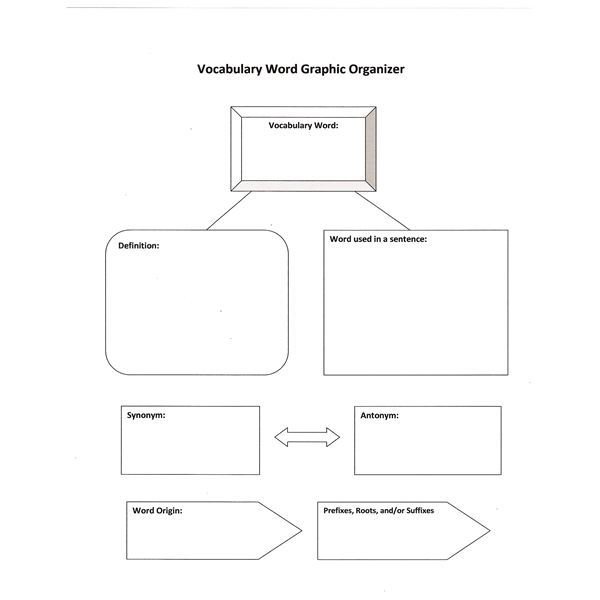
Instructional Procedures
Instructional procedures is the organization of education that is based on the correlation between teaching and learning. It includes the goals you have for your students the curriculum you use, your teaching strategies and their understanding and self monitoring. It is the whole of everything that happens in the classroom such as, class work, lectures, projects and testing. There are some things that you need to consider with instruction procedure.
- Are you making adjustments for students with different abilities?
- Are you encouraging the students to become involved?
- Are you covering the content adequately?
- Are you monitoring the students?
- Are you providing help where needed?
Reflection
The strategies talked about in this unit are all very important. some are skills that you can see your students doing like note taking and making outline, but some you can not tell outwardly if the student is doing them because they are more memory based. These are the skills like recalling information and monitoring comprehension. It takes a little more work on our part to make sure these skill are being learned and utilized. All of these skills make the student an active learner and develop a solid learning platform for the future. Some of these skills are harder to teach than others and some students will pick up on them quickly and some will not. The students with special needs may struggle more with these skills depending on their limitations but, it is those limitations that make them need these skill even more. Being creative with learning strategies will help with this. They key is to never limit them and never give up on their ability to learn.
deck
By ataft4482
deck
- 679



